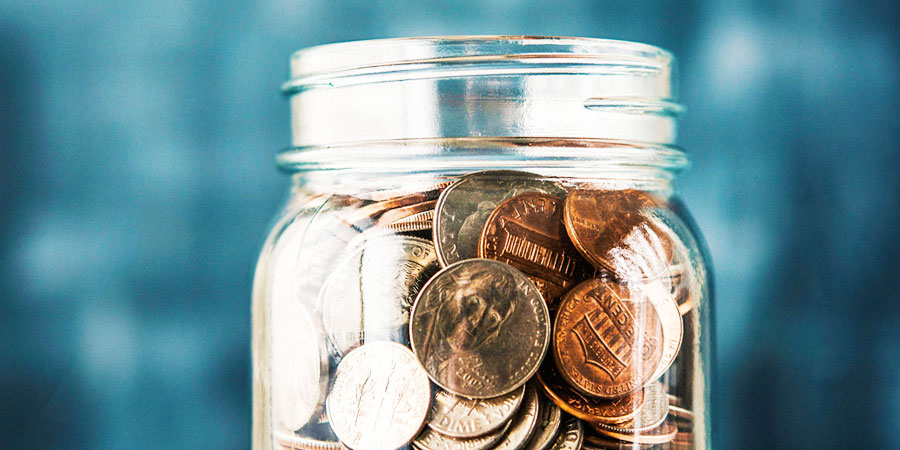The biggest factor in determining whether you are good with money comes down to one thing.
Believing that you are.
The Henry Ford quote of “Whether you think you can or whether you think you can’t, you’re right,” is apt in this case.
But does just believing that you are good with money enough? Can you really change from being a spender to a saver just over thinking positively?
Sort of. But like most other things in life, it comes down to consistent action along with the right mindset that will allow you to change your habits for the better.
In this post, I’ll go over:
- How to adopt a money mindset that will help set you up for financial success.
- How to put a plan into action that aligns with your new beliefs about money.
- How a simple change to your financial mindset can improve other areas of your life.
1 – Change Your Mindset
As I mentioned above the true key to whether you’ll be good with money or not is believing that you are.
That means changing your limiting beliefs over your aptitude with your finances. If you’ve ever heard yourself say things like, ‘Oh, I’m just not good with money,’ then you need to start changing that self-dialogue by creating a better money mindset.
What is a Money Mindset?
You’ve probably heard the term before and wondered what it exactly meant. It’s simply how you think about your finances.
Because how you think about your money, whether you have a little or a lot, will determine the decisions that you make.
Some places like to lump people into two camps: the spenders and the savers.
In reality, it’s a little more complicated than that (just like everything in life). All of us have a tendency to either spend or save according to what we place importance on.
So just calling yourself a spender because you don’t save isn’t likely a true statement (or a helpful one).
It’s just that you haven’t had the right belief or motivation to want to save. Or perhaps you just don’t know where to start because you haven’t been taught how.
In that case, all you need is a shift in either your education or beliefs to a mindset of abundance.
So changing to a Mindset of Abundance really works?
Kind of. But not for simply placing a bunch of money symbols on a vision board and hoping the universe will magically provide. (Vision boards can work well for providing clarity and focus though.)
Abundance mindset and the other side scarcity mindset was covered in the Steven Covey classic, The 7 Habits of Highly Effective People.
In it, he describes how those with differing beliefs to either scarcity or abundance will influence their success in life.
Those with an abundance mentality are able to move forward easier in all aspects of their life (including their finances) because they believe there is enough for everyone and take a longer-term approach to things. Like investing for the future.
In contrast, a scarcity mindset means that people hold on to what they have because they don’t think there is enough to go around. So someone with a scarcity mindset can’t think about saving because they need to spend all their money now because they can’t imagine more in the future or the thing they want won’t be available next week.
You change your thinking that you’ll never get ahead (scarcity mindset) to one where you start to build toward financial independence for your future (an abundant mindset).
How do I do that? How do I change my thinking?
Slowly. It’s unrealistic to think that you can snap your fingers and then voila you’re now good with money because you changed your mind about it.
Stop telling yourself that you are bad with money and thinking that you’re a ‘spender’, and make a choice to learn what you need to do to get better and that you can do it.
Making a sensible saving plan is a good start.
2 – Put a Financial Plan Into Action
Now that you’ve started to take steps to change your thinking, the next thing you need is a plan to put all your healthy new beliefs into reality.
That starts by looking at your current financial situation and creating a budget that will incorporate your long-term goals.
Start Tracking Your Spending
Knowing where your money goes each month is key to gaining financial control. By seeing exactly what you’re spending you’ll have a better understanding of where you might be able to cut back to find money to save.
Don’t feel bad if you find you spend far more than you thought you did in a particular area. We all have those shopping weaknesses. Mine is bath and beauty products. We don’t judge 🙂
Next, spend time thinking about what you really need versus what you mindlessly spend money on. In reality, we don’t need as much stuff as we think we do.
It’s not about going without here, it’s about allocating our resources (our money) toward the things that are either necessary (rent/food/health/etc), or that we love and couldn’t live without.
Sacrifice those things that you are ‘meh’ about or could do cheaper. That’s the money you’ll use to start building your savings.
Open a Savings Account
I don’t keep my savings in the same account that I use for everyday expenses.
You need two accounts. An everyday transaction account and a savings account. The first should be easy to access and is where you deposit your pay and use to pay bills etc. You no doubt already have this one.
The second is a separate savings account. Generally, you want your savings account to have a high-interest rate associated with it. Around two percent p.a. is normal right now.
This account can either be with the same bank as your regular transaction account or somewhere else. As long as it’s easy to get money in and out of, you’re golden.
Also, the savings account you choose doesn’t need to be fancy, such as ones with lots of sub-accounts and so on, it just needs to be with a reputable bank and be easy to transfer money in and out of. Oh, and have a good interest rate to help bolster those savings.
Start Saving
Make your first deposit. It doesn’t need to be much, it just needs to be in there. $5, $10, or $50. Whatever you like.
Then you want to make a plan to put a regular amount into it. Decide how much you can afford based on your income and expenses. Remember that you can do this now–it’s for your future.
If you like, set up the amount to auto-transfer so it’s one less thing you have to remember to do.
Making automatic transfers into your savings has shown that people tend to have higher savings balances than those who chose to do it themselves. This is due to the consistent nature of automatic payments. Set and forget works.
What you’ll find now is that as your balance grows, so does your confidence and belief that you can be good with money. The mindset shift then spurs wanting to improve finances more. And the positive cycle continues.
3 – How The Change In Your Money Mindset Can Improve Other Areas of Your Life
As your confidence in your ability to save money continues to grow along with your balance, you’ll start to see a shift in attitude towards other aspects of your life.
Almost like becoming richer, means you’ll live a richer and more fulfilled life.
I know what you’re thinking. Money doesn’t buy happiness and just starting a silly savings plan isn’t enough to make any lasting improvements toward everything.
True, but, it comes back to mindset again.
Health and Relationships
Money problems cause stress. Stress can affect your health and relationships with others. Take away money problems and you can reduce some stress in your life thereby making you healthier and nicer to be around.
Okay, so I’m probably stretching things a little far here, but you get my drift.
I actually don’t think it’s the money itself that helps here (although having a little extra cash for medical emergencies can be a huge weight off your shoulders), but again that mindset and confidence shift.
Confidence and self-awareness that comes from improving one aspect of your life will often create a domino effect that creeps into other parts too.
It doesn’t have to be your finances though, it could be with improving any part of your life – your diet, work, habits, etc. Improving yourself in one area often influences everything else you do.
Becoming Financially Independent
Finally, I want to close off this post with a note on how mindset changes can actually help you become financially independent.
Most people can’t make the leap directly from doing nothing to investing or other major financial change. It’s just too big a jump in thinking.
They need to start slowly and that means something like a simple savings plan, which is achievable for most, can help start the journey toward learning more about finance and eventually to learning on how to become financially independent.
Too many people think that financial independence is an unrealistic dream for them, but that’s only because they don’t believe it’s possible.
Show them that it is a possibility and they can change their financial outlook exponentially.



